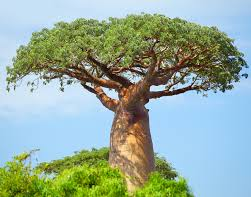Securing the History of Self: What of Universal History?
- By kwende ukaidi
- •
- 06 Oct, 2024
- •
Celebrating the Great Afrikan History Continuum

Throughout the great panorama of Afrikan
experience, there are an unending plethora of points and places that can be
highlighted for specific focus. Yet at the same time, the journeying of this
primary people forever remains one continuum of richly endowed substance. Such discourse
may provide some semblance of meaning to the phrase: universal Afrikan history.
Here, universal self-determined Afrikan experience can be a vast and superlatively
empowering repository of inheritance for soul people to claim and utilise to
enhance their lives whether located here, there or elsewhere.
The contemporary mainstream arena is not devoid of such historical conception and have in some sense selected an approach that – at least on the aesthetic level – may appear to have a broader scope in relation to what may described as general humanity. One source provides the following detail in this regard:
“A universal history is a work aiming at the presentation of a history of all of humankind as a whole. Universal historians try to identify connections and patterns among individual historical events and phenomena, making them part of a general narrative”.
Of course, in a state of interruption and disruption to Afrikan life obvious problems with such an approach can arise. Firstly, the people who govern and operate the ‘presentation of a history of all humankind’ may not even regard the Afrikan as human and worthy of inclusion in any discussion of history. Secondly, the political and parasitic incentives that allow certain groups to dominate and rule are unlikely to be relinquished to present the realities of the Afrikan experience; and so, the versioning of a ‘universal history’ can be tailor-made to fit the status quo. Thirdly, in this context, the word ‘universal’ can become a part of coded propaganda so that it actually relates to a specific group in function without the explicit qualifier of (say) European or some other group.
Thus, Afrikan souls can do themselves a great service in determining historical universality amongst themselves. In this, some of the features of the sourced detail can be utilised, adapted and expanded upon to focus specifically upon the Afrikan experience. The result may look something like the following:
“Universal Afrikan history is to account for the totality of the Afrikan history continuum shared by Afrikan souls as a whole – whether located here, there or elsewhere. Universal Afrikan history details the self-determined efforts of Afrikan souls who have worked, are working and are going to work in the best interests of Afrikan ascension and security. Universal Afrikan history also highlights the inherent connections and harmonising patterns of reality amongst Afrikan souls throughout their continuum to empower their natural collective whole”.
Surely, Afrikan souls have a duty and responsibility to themselves to recover their history and lift and secure themselves in rightful order accordingly. Universal Afrikan history is a key for Afrikan self-knowledge to be realised. As the Afrikan truly journeys in and to know-self, grand civilisation can naturally be brought into fruition. After all, civilisation is not of happenstance.
Afrikan Historia Msimu is an observance period for the duration of the tenth month of the year (so-called October). This is a special time for learning, growth and development of the Afrikan experience in the world. It is a time of spiritual and cultural elevation as Afrikan history is restored to fabric of life in the living knowingness of the then, the now and tomorrow. Great ones of the Afrikan journey are highlighted and the symbols relevant to the time invigorate life in the imperative onward flow of global Afrikan ascendancy. This wonderful observance is a part of the cultural calendar of the Universal Royal Afrikan Nation (URAN).
The Universal Royal Afrikan Nation (URAN) is an Afrikan-centred spiritual and cultural mission for ascendancy that embodies living spiritually and culturally rooted life. To find out more about URAN and its spiritual-cultural mission for liberty and nationhood click here. The exquisite URAN pendant can be obtained online by clicking here.
In his capacity as an Afrikan-centred spiritual cultural practitioner this author is available for further learning in this regard and also for the carrying out of ceremonies such as naming and name reclamation. For details please click here.
Afrikan World Studies programmes are important forms of study in understanding the Afrikan experience. There are a range of subjects covered on these programmes including History, Creative Production, Psychology and Religion. To find out more about these learning programmes please click here. For the video promo for these learning programmes click here.
At nominal cost, also consider acquisition of an a4 laminate poster of articulations by this author when visiting the Yemanja-O establishment to enrol, consult, learn, gather or otherwise.
Also, visit www.u-ran.org for links to Afrikan liberation Love radio programme on Universal Royal Afrikan Radio online.
